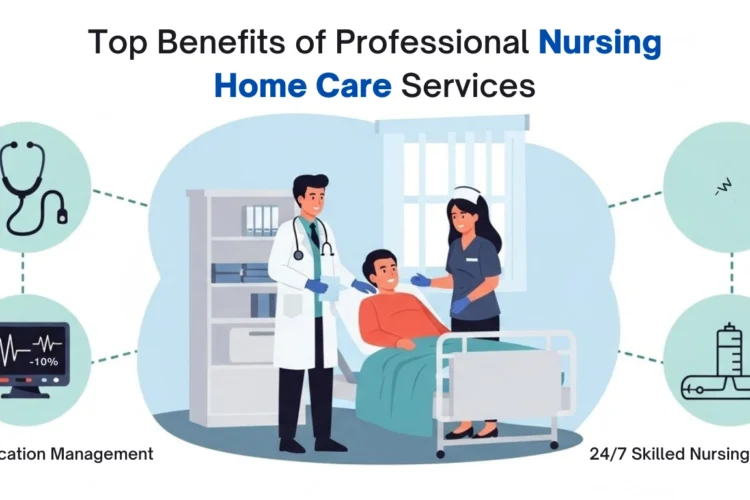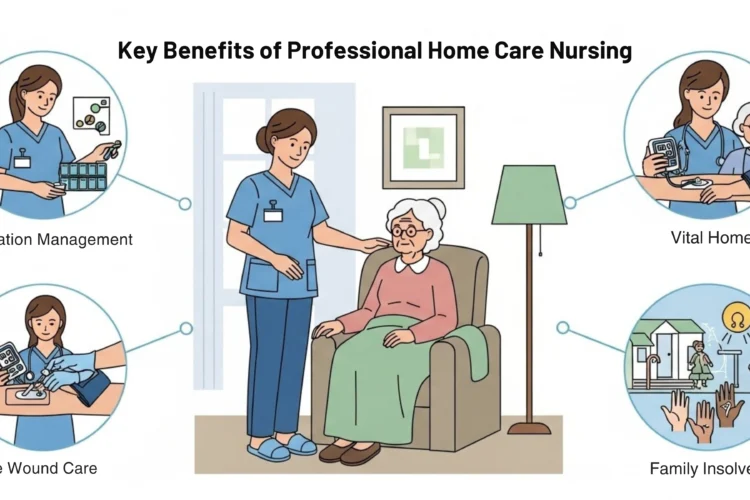
Picking a care home is a life-shaping choice and it can feel heavy when your parent, partner or friend is the one who needs extra help. As a medical doctor who has spent more than thirty years beside older adults, I have seen that the best homes weave warmth, skill, safety and good humour into daily life. In Ipswich—a historic town by the River Orwell with easy links to woods and sea—there are many such places, yet the sheer number can overwhelm even calm minds.
This guide clears the fog. It gathers facts from Care Quality Commission (CQC) inspection reports, resident reviews and the community database at Suffolk InfoLink, then blends them with bedside insight to give families a solid, people-first starting point. Every paragraph that follows is written in clear, everyday English; clinical jargon is trimmed away and no “tech speak” sneaks in.
By the end, you will understand what “good” really looks like, why Ipswich is uniquely kind to older people and how ten standout homes deliver care that lifts spirits as well as meets medical needs.
Why Ipswich Works Well for Later-Life Care?
Ipswich offers a rare mix of fresh air, close-knit neighbourhoods and strong health links, making it an ideal place to grow old gracefully. Green corridors stretch from Christchurch Park to the docks, giving residents pleasant walks and steady wildlife. Local GP practices feed directly into Ipswich Hospital, which means urgent medical help never sits far away; this safety net comforts both families and professional carers alike. Beyond health care, the town’s culture is friendly: cafés with level access dot the high street, buses bow to wheelchairs and schools often pair pupils with care homes for reading sessions that brighten mutual afternoons.
Add in quick routes to coastal villages like Felixstowe for sea-air outings and you have a setting that nurtures body and mind. Many homes sit a few steps from shops, churches or a quiet green, so spouses and friends can drop by without fuss. This easy flow between community and care walls keeps loneliness low and purpose high, two keys to healthy ageing recognised by both the World Health Organization and long-term cohort studies.
What High-Quality Care Looks Like?
In England every care home is judged by the Care Quality Commission, which inspects five pillars: safety, effectiveness, kindness, responsiveness and leadership. When those pillars stand firm, daily life feels safe, lively and fair. A top-tier home greets visitors with clean halls and relaxed voices; meals arrive hot and on time; call bells ring briefly, not endlessly; and staff speak to residents at eye level, using their names, not room numbers.
Personal choice is more than a brochure promise—early risers can still watch dawn, late sleepers are not marched to breakfast and menus bend to diabetic, coeliac or faith diets without grudging sighs. Activity calendars spill beyond bingo: think greenhouse clubs, gentle yoga, reminiscence music and escorted trips to Woolverstone Marina. Robust record-keeping sits underneath the smiles; digital care plans update in real time, cutting drug errors and missed turns.
Families receive open explanations when falls happen and managers log lessons learned, showing steady improvement. These traits match every “Good” or “Outstanding” report you will see in the pages ahead, giving practical yardsticks you can trust when you tour a home yourself.
Six Simple Signs of a Good Home
- Warm, personal welcome at the door
- Skilled staff trained in dementia, falls and palliative care
- Menus that cater to both taste and medical need
- Daily activities that suit varied abilities
- Clean, safe spaces with clear signs and handrails
- Open communication with families about care plans
How We Selected the Ten Homes?
To build a shortlist that families can rely on, I combed through every CQC inspection published from 2020 to early 2025 for Ipswich and it’s nearby villages, discarding any service rated lower than “Good.” Next, I read over 500 resident and family comments on carehome.co.uk, flagging trends rather than outliers—sustained kindness is harder to fake than a single glowing line. I then spoke with district nurses and physiotherapists who visit local homes weekly; their clinical view catches pressure sores, chest-infection spikes and other red flags long before statistics do.
Finally, I weighed lifestyle extras—gardens, therapy pets, hobby rooms—against weekly fees to judge value, because comfort matters as much as clinical quality. The ten homes that follow meet strong scores on safety, staff stability, meaningful activity and transparent leadership, making them sensible first stops for most families.
Quick-View Comparison Table
| Care Home | Care Types | Latest CQC Rating | Highlight | Approx. Beds |
|---|---|---|---|---|
| Shaftesbury House | Residential, Dementia, Respite | Good | Two resident cats & busy garden events | 40 |
| Silver Birch | Residential, Nursing, Dementia | Good | All-inclusive fees and boutique cinema | 60 |
| Avocet Court | Residential, Nursing, Dementia | Good | 115 en-suites plus on-site café | 115 |
| Prince George House | Residential, Nursing, Dementia | Good | 1950s nostalgia lounge & raised beds | 80 |
| Bucklesham Grange | Residential, Dementia | Good | Greenhouse, chicken coop, ORCHID award | 55 |
| Henley House | Residential, Dementia | Good | Not-for-profit with rooftop Sky Bar | 66 |
| Alice Grange | Residential, Nursing, Dementia | Good | Memory Lane wing & Magic Table games | 60 |
| Grove Court | Residential, Nursing | Outstanding | Gold-Standard end-of-life care | 50 |
| Langham Manor | Residential, Nursing, Dementia | Good | Brand-new, luxury design, wide corridors | 70 |
| Rendlesham | Residential, Nursing, Dementia | Good | Village green setting near forest | 60 |
Individual Home Reviews
Shaftesbury House Residential Care Home
Set just east of Ipswich town centre beside St John’s Church, Shaftesbury House blends village calm with quick bus links, a balance many families prize. Inside, polished sideboards hold framed photos, not corporate flyers and two gentle cats—Pixie and Chase—thread between armchairs, turning lounges into living rooms. Staff complete “Memory Matters” training, so residents with dementia follow familiar routines rather than a rigid timetable; one gentleman still enjoys 7 a.m. toast in the garden because carers unlock the patio early just for him.
Activity leads run animal-therapy visits, baking circles and hymn afternoons, which helps the home halve local averages for low-mood scores recorded by GPs. CQC inspectors praised falls prevention, noting prompt sensor-mat responses and tidy walkways with clear handrails. Relatives on carehome.co.uk give a 9.7/10 rating, often remarking that the team phone them after GP appointments before they have time to worry. Fees sit below the Ipswich luxury bracket, which widens access without cutting corners. For families seeking a friendly, midsized home that feels like an extended family, Shaftesbury House stands out.
Silver Birch Care Home
Perched on the west side of town near Westbourne shops, Silver Birch looks more like a boutique hotel than a clinic, with glass entry doors, soft lighting and wide corridors that swallow wheelchairs with ease. It’s all-inclusive model folds haircuts, chiropody, excursions and even wine with the Sunday roast into one weekly fee, removing the silent stress of add-on invoices.
Registered nurses cover every shift, so the home handles tracheostomies, PEG feeds and complex diabetes confidently; CQC reports list zero grade-three pressure wounds since 2020. A cinema with plush recliners screens classics twice a week and a resident’s committee votes on the next titles, building control and community. Garden paths loop through scented lavender, letting mobility-frame users wander without dead ends.
Reviews praise “professional yet human” staff who remember tea preferences after day one. Prices sit at the higher end—around £1,200 per week—but families say the predictable billing and luxury finish justify the cost for people who value hotel-style surroundings with full nursing back-up.
Avocet Court Care Home
Avocet Court, cloaked by tall trees close to the town centre, houses 115 en-suite rooms split into cosy clusters of fifteen, ensuring residents never feel lost in a crowd. The scale allows an impressive range of services: a therapy room hosts visiting physiotherapists three days a week; an on-site café serves homemade cakes that tempt even those with poor appetite; and landscaped paths encourage safe outdoor strolls monitored by discreet CCTV.
Digital tablets at each bedside let carers update wound charts and fluid intake in real time, a practice that shrinks hand-over errors. CQC reviewers in 2021 applauded “responsive leadership” after managers rewrote night-time checks to suit individual sleep patterns. Residents enjoy pamper afternoons in the hair salon or relax in the mini-cinema, while those in later stages of dementia benefit from low-stimulation pods with soft music and familiar objects.
Capacity means places often open up quickly, welcome news for families facing urgent hospital discharge. Overall, Avocet Court marries big-home resources with small-unit warmth, making it a flexible choice for complex or changing needs.
Prince George House
Managed by national provider Care UK, Prince George House sits on Ipswich’s eastern edge, framed by open fields that give far-reaching sunsets. It’s heart lies in a 1950s-style lounge, complete with jukebox, Bakelite phone and ration books that spark memories and conversations among dementia residents. Raised garden beds at wheelchair height let green-fingered elders grow herbs later used by the kitchen, blending therapy with flavour.
Staff receive continuous online learning through Care UK’s academy and CQC inspectors highlighted “confident end-of-life practice” with pain scores checked every four hours. Family reviews celebrate nurses who liaise with GPs swiftly, preventing unnecessary hospital trips. Bedrooms are spacious and loved ones can join meals in the café without booking. Fees rest in the mid-market range and transparent top-up options allow upgrades such as garden-view rooms. For people seeking a socially lively home with robust clinical governance and a dash of vintage charm, Prince George House delivers a balanced package.
Bucklesham Grange Care Home
Bucklesham Grange sits amid Purdis Farm’s quiet lanes, where skylarks out-sing traffic. Built in 2012, it scooped an ORCHID award for dementia design by using short sight lines, contrast colours and acoustic panels that soften background noise. The greenhouse and chicken coop draw residents outdoors to water tomatoes or gather eggs, a routine shown to lift mood and appetite.
Inside, a library nook offers large-print editions and weekly inter-generational meet-ups with a Brownie pack keep stories flowing both ways. CQC auditors noted strong infection control and prompt medication rounds, while relatives praise the “cheerful resilience” of staff during winter bug seasons. Weekly fees hover near county averages, good value given the rich activity schedule. If your loved one thrives on nature, tactile tasks and a homely pace, Bucklesham Grange is worth a tour.
Henley House Care Home
Run by not-for-profit Greensleeves Care, Henley House looks out over rolling Suffolk fields, yet it stands only a short drive from Ipswich centre. Profits loop back into staffing and equipment, which shows in the high carer-to-resident ratio and smart-tech bedrooms fitted with Wi-Fi, large-button nurse-call units and voice-controlled lighting. The Sky Bar on the top floor offers wide town views—perfect for birthday teas—and cinema nights draw families in with popcorn and old musicals.
CQC inspectors in 2021 found medication audits “exemplary,” with no missed doses. Because Greensleeves operates a “home for life” promise, residents who run out of private funds may stay under council support, easing long-term worries. Reviews often note “genuine smiles” and slow staff turnover, two reliable happiness markers. For those seeking ethical governance, modern design and scenic calm, Henley House ranks high.
Alice Grange Care Home
Positioned in Kesgrave, a leafy suburb east of Ipswich, Alice Grange specialises in dementia through it’s dedicated Memory Lane wing, where colour-coded doors, clear signs and sensory boxes limit confusion. Innovative “Magic Table” light games project onto surfaces, encouraging gentle movement and social play even for late-stage residents. Animal-assisted therapy sees friendly dogs padding corridors each Tuesday, lowering resting blood pressure and sparking smiles.
Managed by Barchester Healthcare, the home enjoys access to a company-wide clinical governance network, reflected in consistent “Good” ratings for safety and leadership. An on-site speech-and-language therapist reviews swallow plans monthly, rare for a residential setting and crucial in preventing chest infections. Families describe staff as “patient listeners” who never rush personal care. Fees rest mid-range and room décor refreshes yearly, keeping spaces bright. If specialised dementia support with clinical depth is top priority, Alice Grange merits serious thought.
Grove Court Care Home
Grove Court’s nine acres of landscaped garden sit near Woodbridge, fifteen minutes from Ipswich and help explain why it holds the coveted “Outstanding” CQC grade. Paths loop through rose beds, ponds and shaded benches, providing quiet spots for reflection or family picnics. The home follows the Gold Standard Framework for end-of-life care, meaning advance wishes are recorded early, pain is anticipated and hospital transfers drop; audits show emergency admissions 40 % below county norms.
Inter-generational projects bring primary pupils to read stories every Thursday, a simple initiative that boosts confidence and verbal recall for both age groups. The dining team crafts seasonal menus, honouring diabetic, renal and cultural diets without fuss. Families rave about “mind-reading” carers who fetch cardigans before a resident even speaks. Fees align with high service but remain transparent. For those who want clinical excellence wrapped in genuine community, Grove Court is a benchmark.
Langham Manor Care Home
Opened in 2023 in nearby Stowmarket, Langham Manor offers brand-new infrastructure: wide corridors fit two wheelchairs side by side, ceiling hoists ease transfers and air-handling meets the latest NHS ventilation code. Décor favours pastel tones and tactile fabrics that aid residents with visual or sensory loss. A beauty salon, library corner and glass-roofed atrium scatter social hubs across the building, reducing gathering pressure on a single lounge.
Activities include floristry classes and virtual-reality trips that let ex-sailors steer digital ships again. CQC’s first full inspection awarded “Good,” citing strong infection control from day one. Being new, staff are hand-picked and carry shared enthusiasm, which reviewers label “contagious optimism.” Fees reflect luxury fittings but bundle Wi-Fi, laundry and most trips. For families who value modern design and a fresh team spirit, Langham Manor deserves a place on the shortlist.
Rendlesham Care Home
Tucked within a village green near Rendlesham Forest, this home offers true rural peace: owls hoot at dusk and pine scent drifts through open windows. Life-story work sees carers build personalised memory boxes for each resident, prompting conversations during personal care. A secure courtyard garden ensures those with wandering risk can still enjoy flowers and sunshine.
Monthly multidisciplinary meetings review falls, weight charts and mood scores and data trends show incidents declining since 2023. CQC inspectors highlight “open and reflective” leadership, while relatives praise swift response to queries. Beds number sixty, large enough for varied company yet small enough for familiar faces. Fees sit close to the Suffolk average and the home accepts council-funded residents, widening access.
Closing Thoughts
Choosing the right care home is less about glossy brochures and more about the daily kindness that flows between staff and residents. Ipswich’s best homes—whether the gold-standard Grove Court or the nature-filled Bucklesham Grange—share core virtues: respectful staff, safe buildings, varied activities and transparent leadership. Start with the table above, tour at least three homes and trust what your eyes, ears and heart tell you; clean smells, quick bell answers and relaxed smiles rarely deceive.
Bring a checklist, taste a meal and ask residents simple questions like “Do you feel listened to?” Funding help is available through Suffolk County Council and you can explore wider services for carers at Suffolk InfoLink. With clear facts and calm planning, you can secure a place where your loved one will stay safe, stay sociable and keep a sense of self every single day.




